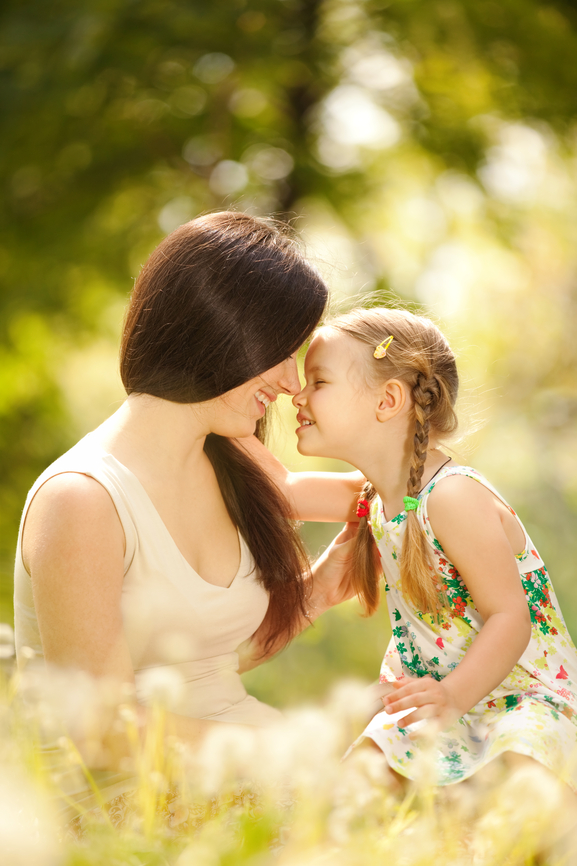Your child needs more than love and bonding; she needs you to be attuned to her emotional and physical needs to allow her to thrive both physically and emotionally.
We were talking about Play and Emotional well-being for children last week; this morning we are going to look at emotional attunement and emotional well-being for your children and yourself.
Emotional competency in your child is about:
- how your child learns about the environment – whether it is safe, a friendly place to be in…
- experiencing her/his feelings
- how to cope and regulate his or her own emotions
- feeling confident
- self awareness.
Many researchers have found that emotional and social competency are an important skill to acquire as your child enters preschool and school. Emotional and social competency are crucial for your child to understand how he or she handles the stresses they face each day, to know how they handle those challenges, and how to regulate their emotions and control their behavior, and also how to get along with people.
Connections and emotional bonding
Those skills come from not only the connections you have with your children, but the level of emotional attunement or non-verbal communication between you and your children.
For example, have you experienced where you instinctively know how your child feels or would respond or react in certain circumstances without asking him or her? That’s emotional attunement – i.e. non-verbal communication. This is the level of connection that you would want to have with your children. This is the level of connection that allows your children to feel safe, valued and understood in life.
You can love, care and provide the best house, most exclusive education for your child; however, the element that is going to see your child maneuver through tough patches in life is the NON-VERBAL connections and relationships that you have with them.
Why?
Connections and bonding is about any interactions that you have with your children, whether it is singing together or laughing together… or attending to their overall physical needs, i.e. clothing, schooling, nutritional food and providing all the most sophisticated toys and electronic gadgets. But that is not sufficient to create the non-verbal connections and bonding for them to thrive.
Secure attachment is about being present, attuned to your child’s needs through their cues and behavior. This means through sounds, body language and gestures, and being able to respond appropriately and timely, being emotionally available and enjoying being in the company of your child.
It is about the non-verbal understanding and attunement to your child’s feelings and what she or he needs to enable a baby’s developing nervous system to create the path ways for the developing brain – and in turn deepen the relationships.
Understadning the first indicator of emotional competency in your children is by looking at:
- how attuned you are with your child’s needs
- how settled/emotionally balanced is your child
- how safe they feel in your presence
- are you the go-to-person for your child?
The more attuned or attached the bonding to your child, the more secure, safe, understood and valued your child will feel. These feelings will help pave the pathways for optimal development of their nervous systems and neural pathways of the brain, so as to enable the brain to set the pathway for your child’s future learning and emotions. These developing pathways give children confidence to take risks and start new challenges, build the trust and beliefs they have about themselves to succeed, and build the empathy they then have towards others.
This is what every parent would like to strive for, and this is what every parent would love their child to achieve in life.
Bonding and Emotional Attunement
Children are born programmed to connect and bond with their parents or primary carer.
Connections and bonding, and meeting your child’s physical needs are the first step. This means loving your child, showering them with hugs and kisses, keeping your child warm, providing them good nutritious food etc., while setting the foundation of connections and building a strong relationship with them.
However, being emotionally attuned with your child involves the non-verbal communications and exchanges, and that mutual understanding that needs not be expressed through words. Such attunment ensures your child feels understood, valued, respected, calm, safe and secure, and so ensures maximum development in his or her nervous system.
This attachment ensures the developing brain sets the path to optimal learning, which influences the development of social, intellectual, physical and emotional competency.
This is what school readiness is about – when your child feels loved, calm, respected, understood, valued…etc.
He/she will feel:
- safe to venture and learn new things
- seek more challenges and take more risks
- learn to trust you and feel safe to communicate his feelings with you, i.e. cry, with gestures
- able to form healthy relationships with people in the future through the trust he builds with you
- safe and confident in a new environment or when being left with carers
- aware of his/her own needs – know what he or she wants
- able to control his or her own feelings.
You baby/child needs more than love; she needs your attention, your patience, your understanding, your presence, your willingness to tune in and listen to her needs both emotionally and physically. A child needs to know that you enjoy her company, feel your loving touch and hear your loving and gentle voice to guide and sooth her….
Your child needs more than love and bonding; she needs you to be attuned to her emotional and physical needs to allow her to thrive.
Have a connected day with your family.







Leave A Comment